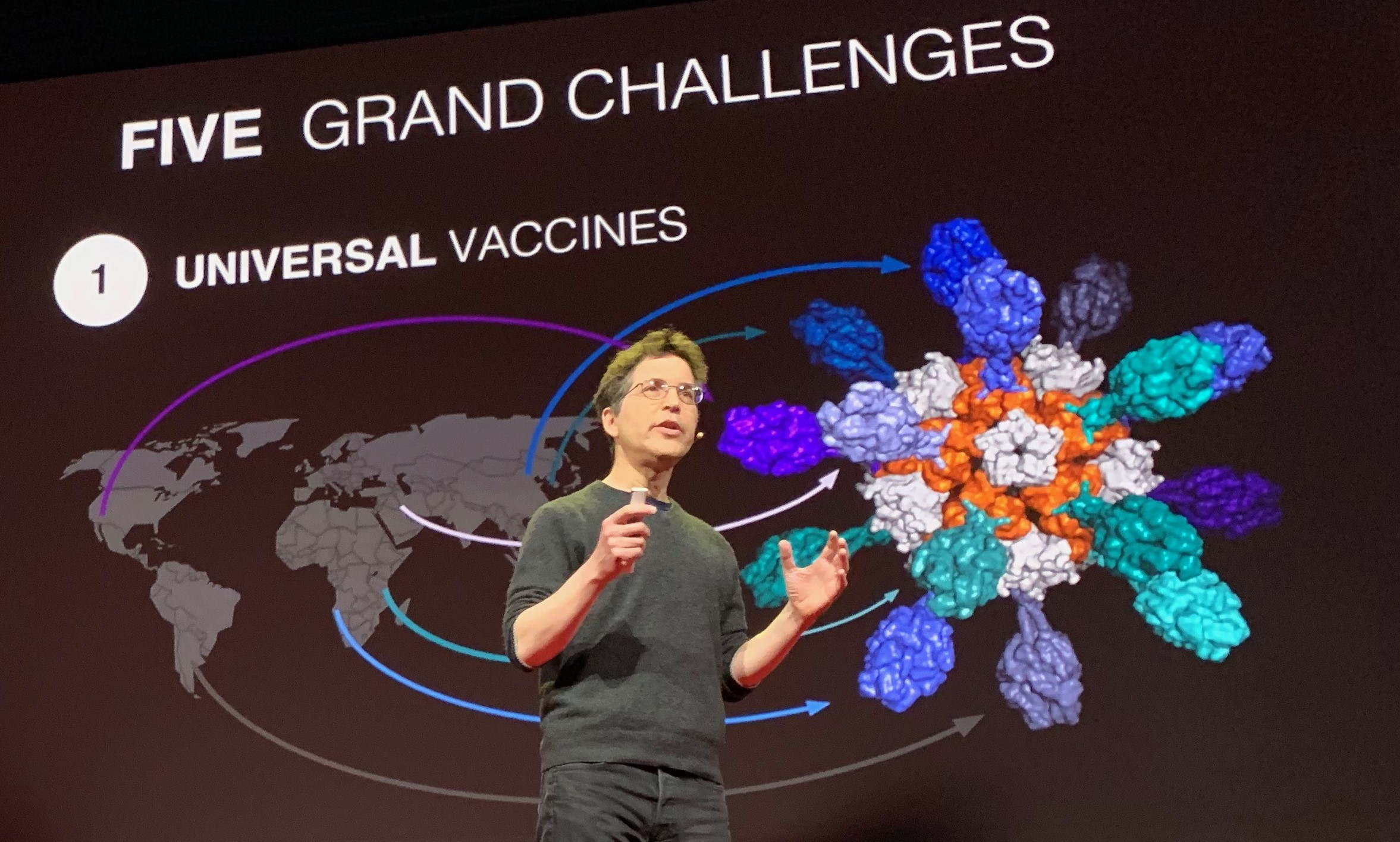Through his research, conducted in 2003, he was able to crack the code in understanding protein structures and through computational design he has been able to build new proteins with the potential to address intractable diseases. Since then, he has created numerous proteins for pharmaceuticals, vaccines, nanomaterials, and tiny sensors.
“HFSP honors David Baker today for his extraordinary creativity,” said Pavel Kabat, Secretary-General of the Human Frontier Science Program. “His research has gifted scientists new insight and tools to understand and create proteins and other structures from the most fundamental, atomic levels. This is a prime example of what HFSP seeks to accomplish: push the very boundaries of knowledge itself.”

Since the inception of HFSP 35 years ago, 31 HFSP awardees have gone on to win Nobel Prizes.
In 2019, Baker was awarded an HFSP Program Grant to develop 3D atomic-scale movies of molecular machines in action, to include enzymes and proteins. To achieve this feat, he used information from multiple existing static structures of stable states with dynamic datasets of inter-atomic distances obtained experimentally and applied this to pinpoint the 3D atomic-level structure of the macromolecule for each sampled reaction time point. Thus, he was able to depict and describe chemical reactions that create proteins and other structures that would normally be impossible to dissect.
Baker is a professor of biochemistry at the University of Washington School of Medicine and director of the UW Medicine Institute for Protein Design.
He shared the Nobel Prize with Sir Demis Hassabis and John M. Jumper, CEO and Senior Research Scientist respectively, at the London-based start-up DeepMind Technologies for developing an AI model called AlphaFold2 that can predict protein structure.
In addition to Baker’s groundbreaking research, he has also helped train and foster the next generation of pioneering scientists by welcoming HFSP-supported postdoctoral researchers to his lab.


































